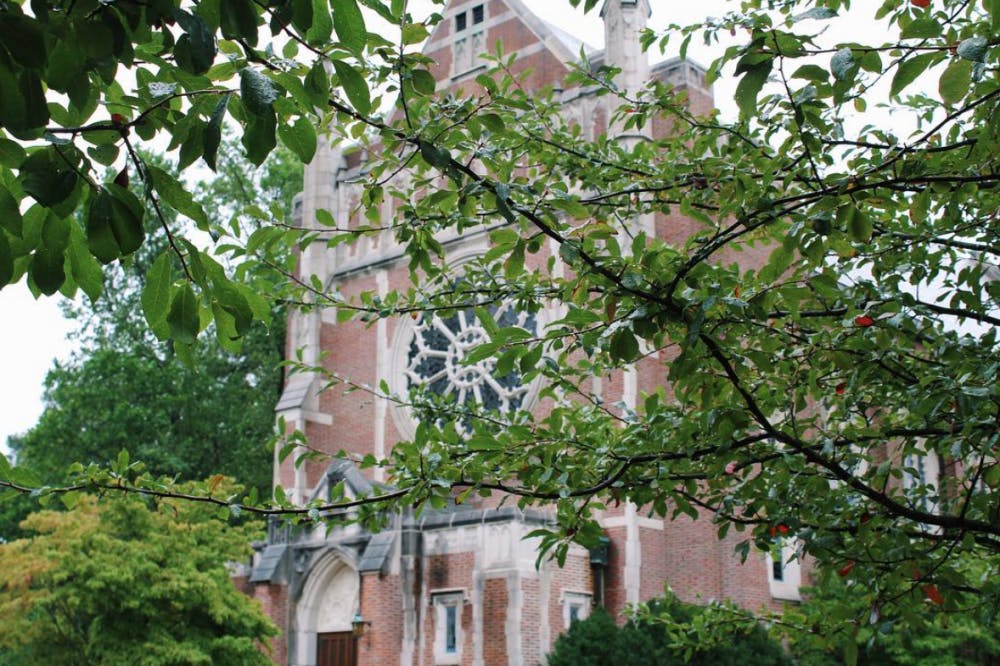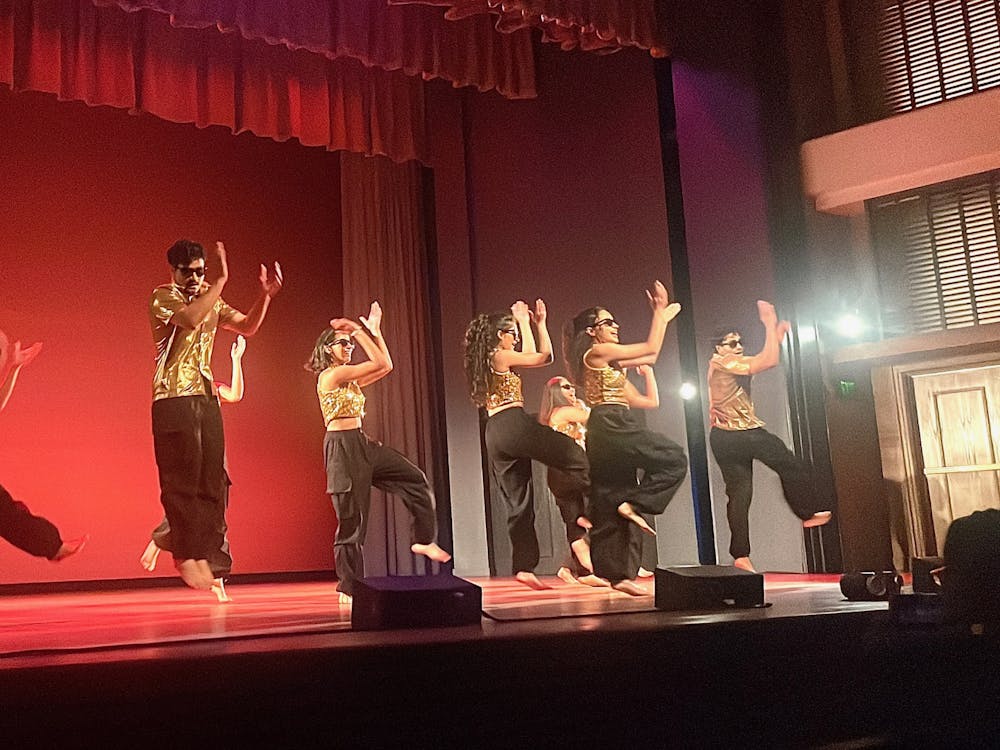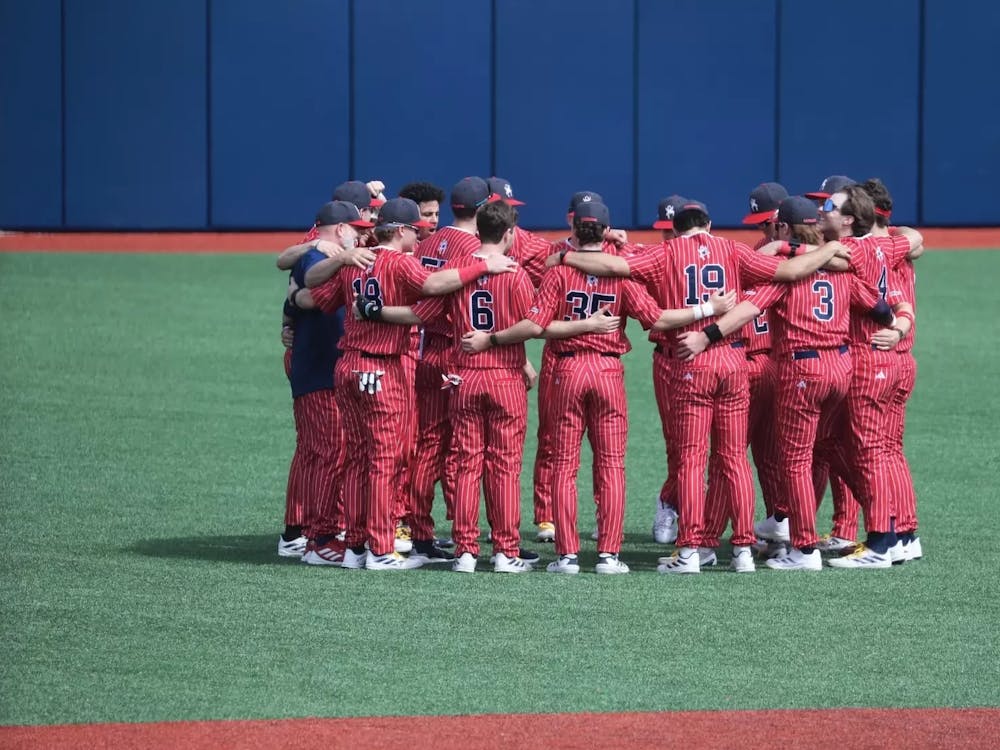The Muslim Student Association is more than just a club. It is a safety net and a support network for the Muslim community at the University of Richmond -- especially during a time when anti-Islamic sentiments are particularly volatile.
“When we hear Islamophobia and xenophobia in general, that puts a lot of pressure on the students,” Waleed Ilyas, Muslim chaplain, said. “Being a Muslim means that everything you do is Islam. So it can be really difficult for Muslim students because in one aspect of their life they feel like ‘I have to be very secular so that people don’t shove me aside, but then I also know my Islam responsibilities.'”
As part of its fall social program, MSA will host an Eid banquet on Saturday, Sept. 29 from 6 p.m. to 8 p.m. to celebrate the passing of Ramadan and Hajj. Although members plan to enjoy the religious festivities, they also hope to help educate others about Islam.
There are two Eids that Muslims practice: Eid al-Fitr and Eid al-Adha. Eid translates to celebration or festival, and during the two Eids, Muslims celebrate the hard work that they put into professing their faith during Ramadan and Hajj.
“Each of these [Eids] celebrate the accomplishments that we have during these months, the spiritual journeys that we go through both for Ramadan and Hajj,” Ilyas said.
Ramadan is the ninth and most sacred month of the year for practicing Muslims. During this month, Muslims must fast from dawn to sunset -- abstaining from food, liquid and even habits such as smoking as a means of spiritual discipline and reflection.
Hajj is the holy pilgrimage that all adult Muslims are ordained to take if financially and physically capable of doing so. Hajj takes place during the last month of the Islamic calendar, Dhu al-Hijjah. Because the Islamic calendar is lunar, the date of these holidays changes year to year.
This change in date posed an issue for last year’s Eids, which fell on the first Tuesday of the school year.
“For some of us who work, you could take the day off, but for students, it’s kind of like you can’t take that day off,” Ilyas said. “It’s not like Christmas where you get a few days before and after to really soak it in.”
For Muslim students, the Eid banquet is not just a night of trivia, henna or photo booths, but it is also an opportunity to taste a bit of home at UR.
“If you ask many of us how we celebrate Eid back home, we dress up nicely and do all that, but being here none of us gets the opportunity to have an Eid,” sophomore Hammad Hassan said. “But this Eid banquet ... resembles it in the sense that we can all get together, have food, talk to each other and take pictures. So even if we are not celebrating on the Eid day, we still know that we are going to have an Eid banquet.”
In addition, the Eid banquet is a public event, so it is an opportunity for Muslim students to share their religion with others and debunk misconceptions that some may have about Islam.
Enjoy what you're reading?
Signup for our newsletter
“There’s not much exposure to diversity here on campus, so I think this is a nice way to have people be able to come to something that’s not what the majority of students recognize and what they’re used to,” first-year Anna Ali said.
Junior Fatema Al Darii, who is from Oman, shared her views on how the media represents Islam.
“I’m not necessarily a practicing Muslim as much as it is something that I was born into, and it reminds me of home and the traditions are ... the things that mark my childhood and culture,“ Al Darii said. “What I’ve seen in the U.S. is nothing remotely similar to what I grew up in. There is a lot of fear equated with Islam and the way it is represented here.”
Al Darii is not wrong.
According to a Pew Research center report, assaults against Muslims skyrocketed in 2015 and 2017, surpassing peak numbers in 2001, post 9-11. This trend continues to ascend during the current Trump administration where Islamophobia has become a major political platform.
In January of 2017, Trump issued Executive Order 13769, which banned travelers from Iraq, Iran, Somalia, Libya, Sudan, Syria and Yemen, seven Muslim-majority nations. His ban reflected the burgeoning animosity toward Muslims that is bubbling in specific subsets of America’s populous.
During this time of fear and violence against Muslims, Ilyas hopes that, through MSA events like the Eid banquet, the campus community will gain a better understanding as to what it means to be a Muslim today, he said.
“A challenge is that [Muslims] are not seen as regular human beings sometimes,” Ilyas said. “If they mess up, if they say something out of temper or they’re having a bad day, it’s usually ‘Wow, look, they’re a Muslim.’ We’re not human first, we are Muslim. We love that word, Muslim, but I feel like it’s either that or you’re not human. You can’t be together.”
Contact news writer Josh Kim at joshua.kim@richmond.edu.
Support independent student media
You can make a tax-deductible donation by clicking the button below, which takes you to our secure PayPal account. The page is set up to receive contributions in whatever amount you designate. We look forward to using the money we raise to further our mission of providing honest and accurate information to students, faculty, staff, alumni and others in the general public.
Donate Now



